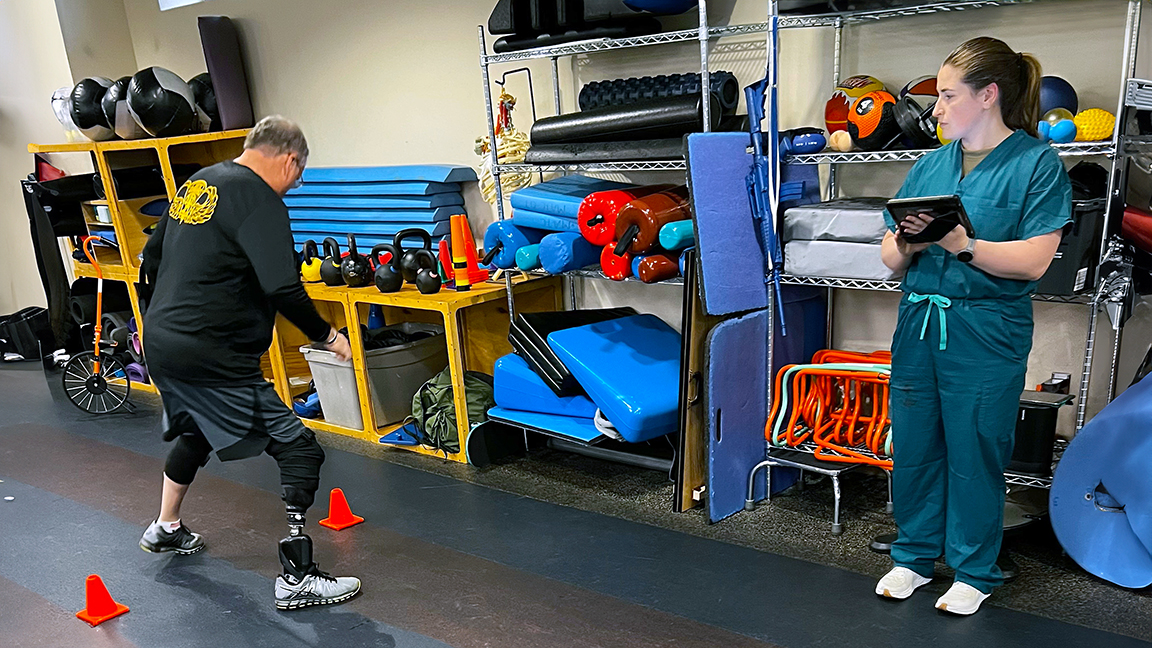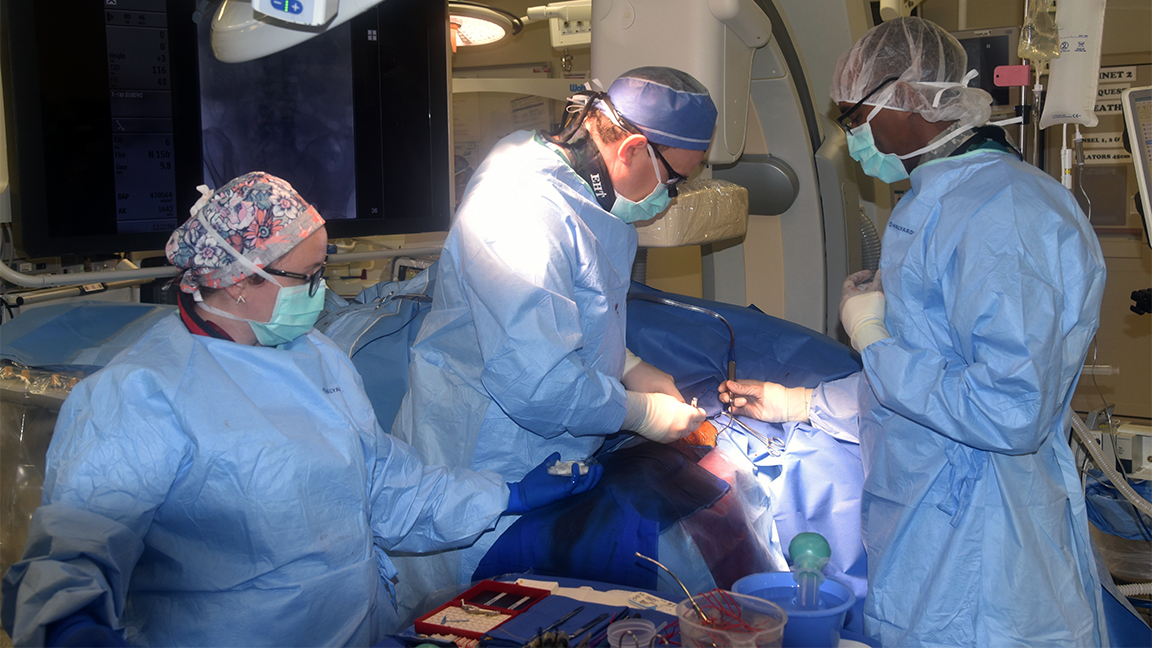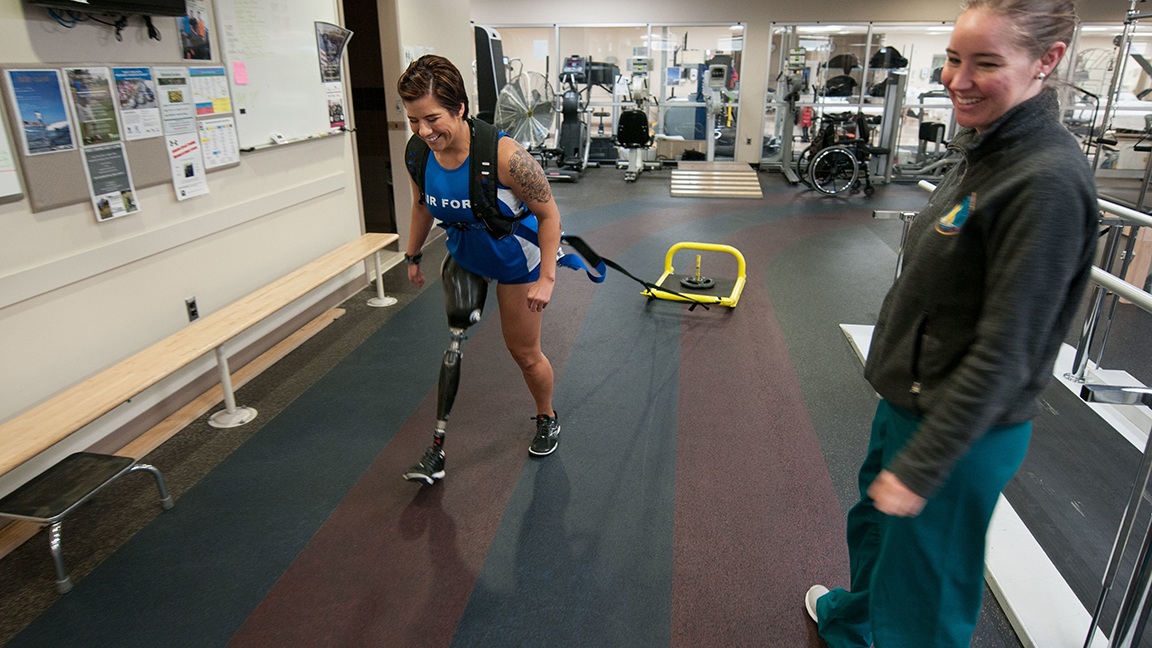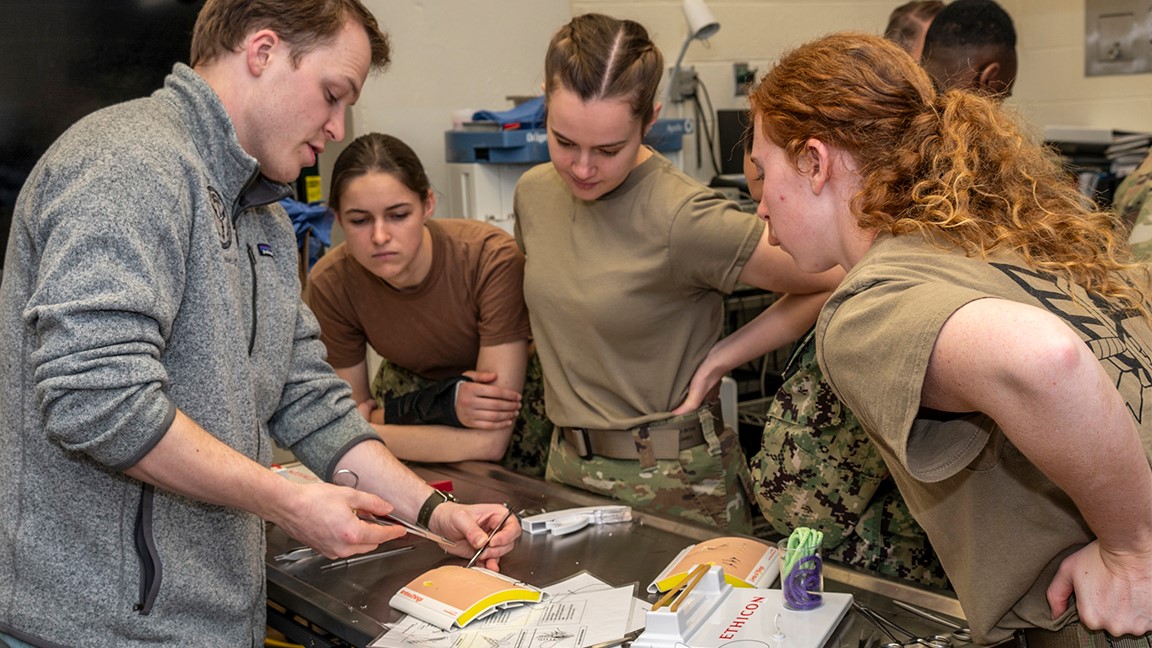April 08, 2025 | By Allison H. Symsack, PT, DPT, and Jessica S. Haynes, PT, DPT
“I am a veteran who lost his lower limb 15 years ago in combat. Two weeks ago, I was fitted with a brand-new prosthesis. Even though I am a good walker, I have noticed that I am not walking as well as I used to. I often wish that I still had my PT (physical therapist) with me, watching me walk and giving me tips on how to improve and walk more efficiently. My PT would also assign me exercises for strength and balance. Unfortunately, I don’t have time to travel to the clinic right now. I work full time and have a young family to take care of. I wish there was a way I could still work on improving my gait and the use of my prosthesis in everyday activities.”
These thoughts and feelings are familiar among service members and veterans who have lower limb loss (LLL). They could benefit from physical therapy to improve their function and quality of life, but access to care is often challenging. Geographical location and everyday life complications can prevent service members and veterans with LLL from receiving in-person care.
A group of clinician-scientists, led by retired Army Col. (Dr.) Paul Pasquina, chair of the Uniformed Services University (USU) Department of Physical Medicine and Rehabilitation, and Dr. Ignacio Gaunaurd, Bruce W. Carter VA Medical Center, Miami, Florida, is tackling this issue by developing wearable mobile health technology.
Funded and supported by a Department of Veterans Affairs (VA)/Department of Defense Joint Incentive Fund grant, the Mobile Device Outcomes-based Rehabilitation Program (MDORP) initiative has fostered a collaboration between the VA, the DOD, and computer programmers to design and test a mobile application and wearable sensors. This technology allows real-time expert physical therapy training at home or while walking in the community.
This advanced technology, called the Rehabilitative Lower Limb Orthopedic Assistive Device (ReLOAD), was developed by Dr. Robert Gailey and the team at the University of Miami Miller School of Medicine Departments of Physical Therapy, Music Engineering, and FORE Center. It has been compared to having “a physical therapist in your pocket,” Pasquina said. “Rehabilitation providers can use the ReLOAD system to administer functional assessment tests, help identify strength and balance weaknesses, with and without a prosthesis, and then prescribe personalized home exercises and gait modifications to help those with lower limb amputation achieve greater mobility,” Pasquina said.
Service members and veterans can use the system at home, where they can see videos and read instructions for the prescribed exercises and rate the difficulty. They can also use the wearable sensors while walking to analyze their gait, and the system provides real-time feedback to help them improve their gait quality. Providers can then monitor their patient’s progress remotely and make rehabilitation modifications through the app. This means patients don’t have to disrupt their daily activities to be seen by a physical therapist.
The MDORP project continues to advance, with active provider and patient participation across five VA centers and Walter Reed National Military Medical Center. The research teams are analyzing terabytes of data for over a hundred participants. Promising preliminary data has been shared at several professional conferences, including the American Orthotics and Prosthetics Association, the American Physical Therapy Association Combined Sections Meeting, and the American Academy of Orthotics and Prosthetics.
The potential benefits of MDORP extend beyond the DOD and VA, as individuals with LLL are at greater risk for arthritis, chronic pain, and cardiovascular disease. The team’s ultimate goal is to optimize gait, improve strength and mobility, and keep patients fit. The team is also assessing the system’s added benefits to increasing access to high-quality care, regardless of where a service member or veteran lives.
For physical therapists and other rehabilitation team members—such as physicians and prosthetists—it offers greater efficiency and accuracy in outcome assessments, supports evidence-based exercise prescriptions, and enhances the effectiveness of prosthetic training.
Ultimately, MDORP may significantly improve function and quality of care for service members and veterans with LLL, all within a shorter rehabilitation time frame.





